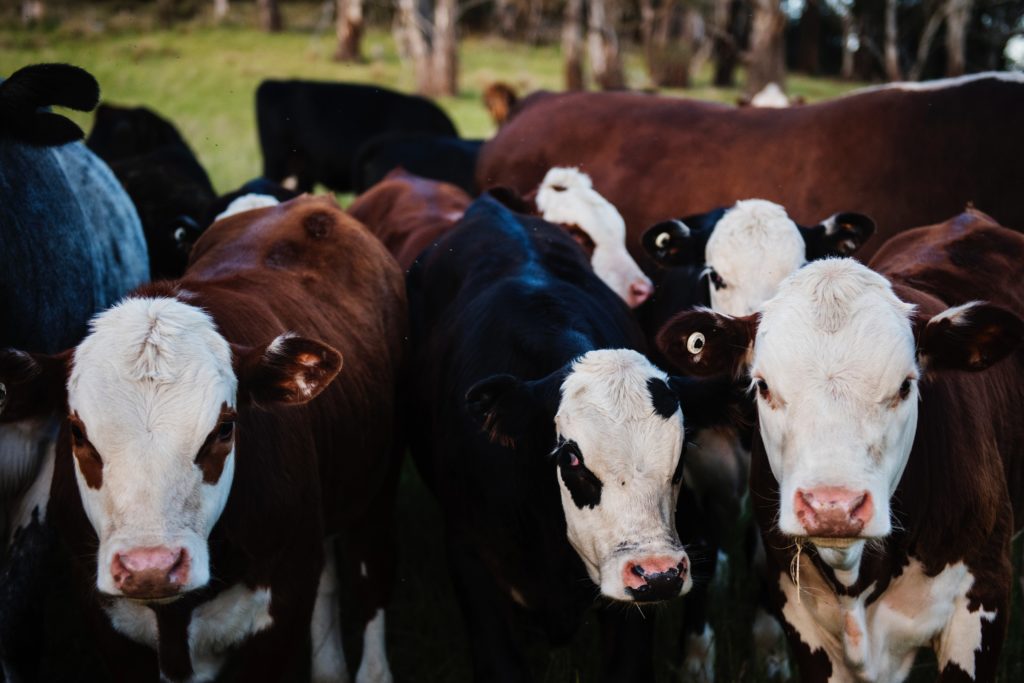A recent situation involving the immediate seizure of cattle in Goliad County brought a lot of attention to the laws regarding when livestock can be seized when allegations of animal cruelty have been made.

Photo by Kat Jayne from Pexels
Background
When Mr. Franke, an 81-year old Goliad County cattle rancher died, he left 100 head of cattle and a portion of land to the Padillas, a couple who had worked for Mr. Franke caring for his livestock for years. Mr. Franke’s children challenged Mr. Franke’s will, arguing they should be entitled to the cattle rather than the Padillas.
While the probate of the will was pending, an animal cruelty complaint was made, claiming that the cattle were underfed. A complaint was filed with the local constable asking the constable to impound the animals pursuant to Texas Health & Safety Code Section 821.021-.025, which allows for the seizure of cruelly treated livestock. The constable did grant the seizure warrant, and the cattle were seized and placed in the care of the Houston Humane Society without a hearing in which the owners could participate.
The applicable statute requires a hearing shortly after animals are seized. At that hearing, the Justice of the Peace, the court held that the Padillas did inhumanely treat the livestock and ordered them to be sold at public auction. In order to appeal the court’s ruling, the Padillas were required to post a $72,000 bond. [Read Order here.]
Similarly, under the applicable statute, the “appeal” is to the County Court, not a court of appeals, and also occurs on an expedited basis. On appeal, the Padillas made several arguments, including claiming that the warrant to impound the cattle was improper as it was based on evidence gathered by the use of a drone, without a warrant or statutory authorization. The County Judge dismissed the case, ordered the cattle returned to the Padillas, and required the County to pay costs incurred by the Padillas.
This case and the media coverage surrounding it may have been the first time many Texas livestock owners heard of a statute–Texas Health and Safety Code Section 821.021-.025–allowing animals to be impounded for alleged animal cruelty. This is an important law of which all animal owners should be aware.
Impounding the animals
The statute provides that of an officer who has responsibility for animal control in a county or municipality has reason to believe animals have been or is currently being cruelly treated, the officer may apply to a court where the animals are located for a warrant to impound the animals.
The statute defines “cruelly treated” as including animals that are “tortured, seriously overworked, unreasonably abandoned, unreasonably deprived of necessary food, care, or shelter, cruelly confined, caused to fight with another animal, or subjected to conduct prohibited by Section 21.09, Penal Code.”
The officer must make a showing of probable cause to believe that animals have been or are being cruelly treated in order to obtain a warrant to impound the animals. Additionally, upon the issuance of an impound warrant, the court must set a hearing to determine whether the animals have been cruelly treated.
The officer executing the warrant must impound the animals and give written notice of the time and place of the hearing to the “owner” of the animals. An “owner” is defined as the person who owns or has control or custody of the animals.
Hearing
Both the owner and the county may present evidence at the hearing.
If the court finds the animals have not been cruelly treated, they will be returned to their owner.
If the court finds that the animals have been cruelly treated, the court must divest the owner of ownership of the animals, order the sale of the animals at public auction, order the animal be given to a municipal or county animal shelter or a nonprofit animal welfare organization, or order the animal humanely destroyed if that is in the best interest of the animal or public health and safety. Additionally, if an animal is deemed cruelly treated by the court, the owner must pay all court costs, including the administrative costs of the investigation, expert witnesses, and any public sale costs incurred and all costs incurred by the shelter or nonprofit animal welfare organization in housing and caring for the animal and humanely destroying the animal, if that is ordered by the court.
Appeal
An animal owner who is found to have cruelly treated animals may appeal that finding to the county court or the county court at law. In order to appeal, the owner must file a notice of appeal and post a cash or surety bond no later than the 10th day after the order is issued. The amount of the bond will be set by the court and must be the court costs and the amount of estimated costs of caring for, selling, or destroying the animal.
The court must consider the appeal de novo (meaning they will view the evidence new and not merely review the decision of the justice of the peace) and dispose of the appeal. A jury trial may be requested by either party to the appeal.
It is important to note that the decision of the county court or county court at law is final and may not be further appealed. This is markedly different that most civil cases where an appeal would be permitted.











